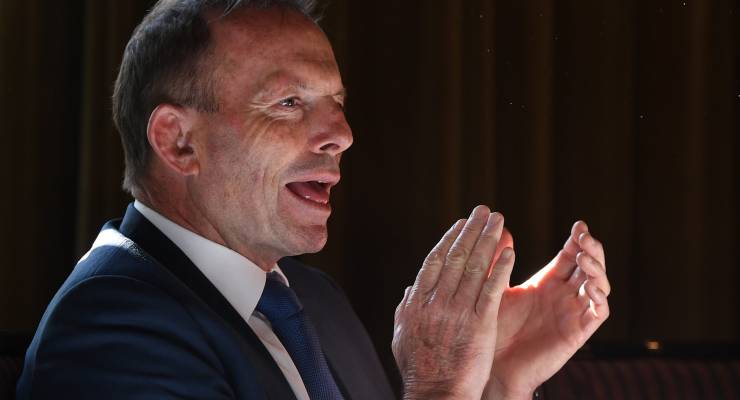
In October 2014, I was surprised to receive a letter from Canberra in an envelope bearing an embossed crest. It was from the governor-general’s secretary, advising me that I was being considered for investiture with the Medal of the Order of Australia, and asking if I would be willing to accept such an honour.
The truth is, I had always regarded such formal honours as the preserve of the rich, the powerful, or the conformistas. So I was somewhat cynical as to my eligibility.
But I resolved to consider the offer carefully, particularly in the knowledge that the Australian honours system had been created in 1975 by then prime minister Gough Whitlam “for the purpose of according recognition to Australian citizens and other persons for achievement or meritorious service” — which sounded quite noble.
It was also, of course, designed to replace the pre-existing British awards which tended (one way or another) merely to reinforce the class system. So I applauded its probity.
Whitlam had worked hard in his time to achieve a more egalitarian society. Indeed, many of my heroes and social champions have been awarded Australian honours over the years. So (on deep reflection) I felt that I was in honourable company, and that this was an honour in which I could participate.
Nevertheless, it was a hard decision. Many people whose services to the Australian community have been dubious to say the least have been awarded the Order of Australia — the names of Rolf Harris, Eddie Obeid and John Maitland immediately spring to mind (though all three have since been stripped of their honours).
There have also been many whose only contribution has been to belong to the “right” political party, or to know the “right” people.
But there are always bad apples.
The reality is that honours should be awarded regardless of political allegiances or the degree to which those allegiances polarise society — and that requires a degree of objectivity that is often hard to achieve.
The Council of the Order of Australia sometimes has a difficult, if not impossible, job in balancing rectitude and impropriety with respect to controversial politicians. It is so much simpler to consider the political task of “policy formulation” as being beyond the bounds of “ethics”, and those who create policy as being innately honourable. To do otherwise would, it seems, bring an improper political perspective to the role.
But politicians fall into a class of people whose specific function is the furtherance of the interests of the communities they (ostensibly) serve. The good works that they perform should be regarded as “their job”, and their remuneration by way of salary and perks and pensions should (it could be argued) be more than sufficient reward.
What would otherwise be considered to be “extra-curricular” work, such as membership of local clubs or voluntary associations, should be seen as an extension of their political jobs for which their salaries and perks reward them, and from which they benefit when the next election roles around. The “bad works” that politicians do should be remedied — the argument continues — in the ballot box or by legal sanctions (such as would be recommended by a federal ICAC, if we had one).
For these reasons — if for no other — there is a compelling argument that all politicians should be exempt from Australian honours while they hold office, and for a period of several years after leaving politics. That would insulate the honours system from the common criticism that it is merely “mates looking after mates”.
Adrian Lipscomb is a retired lawyer and author.







It follows that a leader of a large and intrusive nation is an executive thief and murderer, by consequences of orders given and enforced. Many Australian politicians are in that area, one of robbery, torture, forms of homicide, spying, enslaving, oppressions. Some of our political midget mentalities have resorted to abuse of “the national interest”, an egofixated evasion of all honesty and decency. Jack Howard, the Earlwood Earwig, used to pipe up constantly, projecting his tiny mind to the stars. Ego greed is ruinous to the nation, and reputation lying inflaters are evil and repulsive.
It makes a mockery of legitimate achievements over and above the call of duty when politicians get awards for service – isn’t being elected and serving your constituency enough?
I reckon that the mere act of being elected is enough reward for the majority of politicians. Sure there are exceptions like Penny Wong, Andrew Leigh, Craig Laundy, Andrew Mack, Lindsay Tanner and perhaps a couple of others. For most of them, their election should be sufficient to satisfy their needy egos and desire to control and impose their will upon others, which includes not just us, the great unwashed, but in particular their own colleagues.
In fact it could be argued that a candidate’s suitability for pre-selection is in inverse proportion to the level of his/her desire for it.
Keating’s declining to accept any gongs puts him head and shoulders above the rest for that alone. The rest of them are just a bunch of forelock tuggers.
BTW, the description of Shane Stone in part 2 of this series was just nauseating. People like him, Minchin, Richardson, Bishop, Obeid and now Somyurek are all cut from the same cloth – just in it for themselves.
Are any betting shops offering odds on when Eric Abetz gets a gong?
I’m no fan of PJK but he deserved kudos for declining the offer.
Absolutely nobody should get an award for simply ‘doing their job’.
Since politicians jobs are more a case of getting re-elected than anything else then even more than any other public servant they should never be given any form of award.
I take the author’s point on the original intent and worth of this award.
However, when one considers many of the more recent members of this club the wisdom of Groucho Marx’s observation is unarguable.